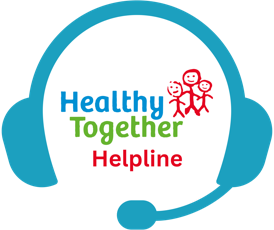The health benefits of giving up smoking begin the moment you stop, and continue to increase the longer you have quit.
Benefits of stopping smoking in pregnancy
Stopping smoking will help both you and your baby immediately. Harmful gases, such as carbon monoxide, and other damaging chemicals will clear from your body. When you stop smoking:
- you will reduce the risk of complications in pregnancy and birth
- you are more likely to have a healthier pregnancy and a healthier baby
- you will reduce the risk of stillbirth
- you will reduce the chance of your baby being born early. Babies that are born prematurely are at increased risk of breathing, feeding and other health problems
- your baby is less likely to be born with a low birth weight. Babies of smokers are, on average, 200g (about 8oz) lighter than other babies, which can cause problems during and after labour. For example, they are more likely to have problems keeping warm and are more likely to get infections
- you will reduce the risk of sudden infant death syndrome (SIDS), also known as “cot death”.
Stopping smoking now will also help your baby later in life. Children whose parents smoke are more likely to suffer from asthma and other serious illnesses that may need hospital treatment.
Cigarettes and tobacco are really expensive, so quitting will also help you to save money.
It’s against the law to smoke in public buildings, and in 2015 it became illegal to smoke in any vehicle carrying people under the age of 18.
NHS Smokefree helpline
The NHS Smokefree helpline offers free help, support and advice on stopping smoking and can give you details of local support services. You can also sign up to receive ongoing advice and support at a time that suits you.
NHS Smokefree helpline: 0300 123 1044. Open: 9am to 8pm Monday to Friday, and 11am to 4pm Saturday and Sunday.
Live Well Leicester Stop Smoking Service

The Live Well Leicester Stop Smoking Service offers a free, one to one, 12 week programme of support.
There are a large number of clinics throughout the city and they can provide home visits for pregnant women.
They offer all the traditional licensed products (patches, mouth spray, inhalators, Champix and many more) and advisors are skilled in helping people choose the right product for them.
They are also e-cig friendly, and although can’t supply e-cigs, they can give the behavioural support that makes a big difference to success rates.
Those living in Leicester city can call Stop on 0116 4544000 to talk to an advisor for more information.

Quit Ready is a part of Leicestershire County Council and welcomes anyone who wishes to stop smoking to take part in a 12 week programme led by you.
This free programme provides friendly advisors who are on hand throughout the course to offer support and the mechanisms to help you stay and cope being smoke free.
They will also provide you with 12 weeks worth of nicotine replacement therapy, Champix or Zyban, and will keep in touch with you between appointments via phone, text, webchats and email.
Those living in the county can call Quit Ready on 0345 646 6666 or text “ready” to 66777.




